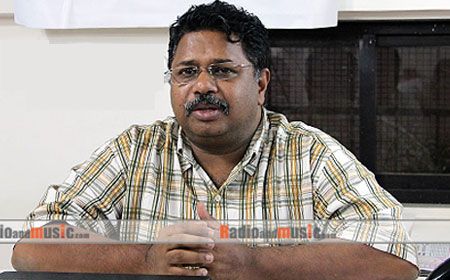
Even as the digital domain battles the internet piracy beast, one of the major reasons it has curbed down a bit over the years is the Indian Music Industry (IMI). The umbrella organisation of the music industry responsible for combating piracy in India has initiated stringent action against pirates in various ways, and have in some way managed to curb the losses. One of its major victories was when IMI obtained Mandatory Injunction Orders from the Kolkata High Court directing 388 Internet Service Providers (ISPs) to block 104 Music Copyright Infringing websites within 36 hours of the date of the intimation.
Radioandmusic.com brings the man behind the efforts, IMI secretary general Savio DSouza to talk about the status of internet piracy and the future with the amended Copyright Act.
Piracy continues the way it is. One of the key issues about piracy is that it is actually demanded for your product but non-monetization. The challenge of a marketer is to get him to pay for it. A number of business models are being created not only in India but across the world to actually address that. Whether its iTunes or Spotify or Mobile Music Exchange (MMX), they are all efforts to monetize the segment.
The year has seen exemplary action on internet piracy and it continues. A number of websites have been shut down, there are court orders pending also. So that’s doing very well. Royalties in terms of public performance both in PPL and IPRS are going up. The Copyright Amendment has come along and time will tell how it really grows on everyone.
Monetization does not depend on whether it’s a free model or paid model, it is whether the IP owner is making money out of the way. For example, YouTube is a completely free platform but if someone uses a song there, then YouTube is paying the IP owner. It doesn't matter if the consumer is listening to it for free or not. And that is the challenge that the IP owners are facing. I dont know if it will expand the market of legitimacy because its tough to say if the consumer will actually pick up the model. For example Nabster closed down and launched a legitimate business model but it has not got the numbers as earlier. So its not about free or paid, its your ability to market your product to the consumer.
Its not that the law has not been implemented, the IMI is doing its bit. In terms of licensing, this year the number of licenses have increased by more than 3000 licenses. So it clearly tells you that things are scaling up.
Even the Copyright (Amendment) Act 2012 that has been brought in, we must attribute its valuation. Whether it was bollywood where there were several issues over the Sholay and Himmatwala songs, it shows that people are becoming far more enlightened in copyright. There are questions being asked on ownership and royalty distribution which is a challenge. And it surely shows that there has been a far better awareness to copyright than before, around 10 years ago.
Similarly in terms of live concerts there are new singers and performers associations that will come along and this would actually push the way royalties are collected.
The copyright scene is changing for the better. Its changing in a way that copyright users are becoming more knowledgeable that they need to pay for good content. And copyright owners are now far more assertive in their ways to address these issues.
I also have a divergent view that the latest court holding on the pharma case which just took place against Novartis is also changing the way courts are looking at things, the balance between the ownership and consumer. And that is what you will see now. The music industry has learnt it the hard way. All the music services that operate are actually trying to balance copyright with the pricing policies. The Indian Performing Right Society (IPRS) and Phonographic performance Ltd (PPL) are also trying to manage their policies accordingly, as per the consumers. That is another challenge.
The song copyright issue in bollywood will never come to the fore. The producer sits with so much power when he discusses the making of a movie. Every lyric writer, singer and composer knows that his road to fame is a hit bollywood movie. So the shots are always going to be called by the producer and this is going to continue.
The whole theme of intellectual property is to pay. There will be a certain amount of payment that an artist will get for the work that he does. Under the new Copyright Act, he can actually demand the rights for a certain time period.. Copyright owners or intellectual property owners do get rewarded. The more your intellectual property, the more you get rewarded. This will continue.
Physical music is also going down and there are a number of countries in the world where physical sales are just dead. In India physical music still exists but it is slowly dying. Music has just moved from physical to digital. One of the sad learning’s of life is that things change but music will remain as it is.
In 2013, the biggest challenge is going to be the copyright amendments. The second big challenge that we will look at is MMX going national. Fighting internet piracy is the third big challenge along with strengthening ground operations. I think we will see a growth of around 7-10 per cent.